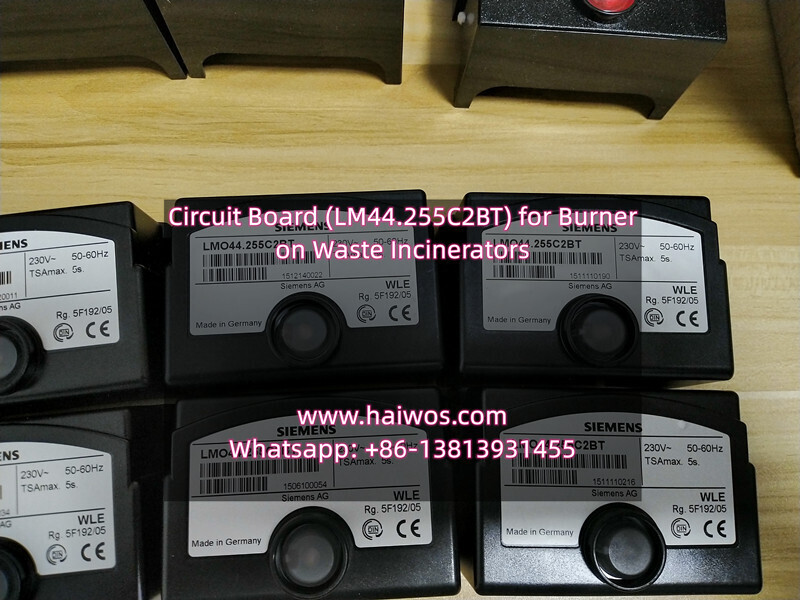Circuit board (LMO44.255C2BT) Simens Control Case for burner for waste incinerators
$250.00
Circuit board (LMO44.255C2BT) Simens Control Case for burner for waste incinerators
Store Link: https://www.haiwos.com/ ***Product Details (***Please Sign In or Login to "My Account". Price is the EXW Factory Term price or send email to us get discount if possible and get shipping cost for delivery by CIF/C&F/FOB term: sales@hiclover.com***) WhatsApp on Mobile: +8613813931455
Circuit board (LM44.255C2BT) Simens Control Case for burner for waste incinerators
In mission areas like Somalia, the United Nations Assistance Mission in Somalia (UNSOM) plays a vital role in providing humanitarian aid and fostering peace and stability in the region. One of the lesser-discussed yet crucial aspects of maintaining a safe and efficient mission is waste management, particularly in camps that serve as operational bases for peacekeepers, aid workers, and local populations.
Effective waste management is essential to not only maintaining the health and hygiene of these camps but also ensuring the sustainability of the mission’s operations in a challenging environment. With limited infrastructure and resources, incinerators have become a vital component in managing waste at the UNSOM camps. These incinerators, often containerized for mobility and efficiency, are designed to handle the disposal of various waste types, including medical waste, food waste, and general refuse.
The Importance of Waste Management in UNSOM Camps
Waste management is an often-overlooked aspect of humanitarian and peacekeeping missions. However, failure to manage waste can lead to significant environmental and health risks. In a mission such as UNSOM, located in Somalia, waste buildup can quickly become a major issue due to the limited waste disposal infrastructure and challenges posed by remote locations.
Some of the main waste categories in the camps include:
- Medical waste: Leftover materials from clinics, hospitals, and emergency treatment centers that need to be disposed of in a safe and sanitary manner.
- Organic waste: Includes food scraps and other biodegradable materials that need to be handled efficiently to prevent contamination and pest issues.
- Plastic and paper waste: Common in camp environments, such as packaging materials and disposable items.
Given the sensitivity of these wastes, particularly medical waste, proper disposal is critical to preventing contamination, disease outbreaks, and environmental harm. Incinerators, specifically designed for high-efficiency disposal, are the most effective solution.
How Incinerators Support Waste Disposal in UNSOM Camps
Incineration is a preferred method of waste disposal in many peacekeeping and humanitarian mission areas, particularly those located in remote or conflict-affected regions. Incinerators offer a controlled environment for the combustion of waste, ensuring that hazardous materials are safely destroyed and converted into environmentally benign byproducts, such as ash and gases.
Key Features of Incinerators Used in UNSOM Camps:
- Containerized Mobile Incinerators: These incinerators are highly portable and can be deployed to remote areas with minimal infrastructure. They are ideal for use in peacekeeping operations, as they can be easily transported and set up at various camps, providing flexibility in waste management.
- Medical Waste Incinerators: These specialized incinerators are designed to handle medical waste, including syringes, contaminated materials, and other potentially hazardous items. They ensure that harmful pathogens are neutralized during the burning process, reducing the risk of infections and disease transmission.
- High-Efficiency Combustion: Modern incinerators feature advanced combustion technologies, such as PLC control systems, which ensure that waste is burned at the optimal temperature, reducing emissions and ensuring complete destruction of harmful materials.
- Environmental Safety: Many of these incinerators include wet scrubber systems to minimize harmful air emissions, ensuring that the process is as environmentally friendly as possible. These systems help reduce pollutants like dioxins and furans, which can be produced during the incineration of certain types of waste.
- Waste Reduction: Incinerators reduce the volume of waste significantly, making it easier to manage and handle the remaining byproducts. This is especially useful in areas where landfills or other waste disposal options are unavailable or impractical.
The Role of HICLOVER Incinerators in UNSOM Camp Waste Management
HICLOVER’s industrial-grade incinerators provide the ideal solution for waste disposal in mission camps like UNSOM. With a range of models designed for high-density waste areas, medical waste incineration, and mobile applications, HICLOVER’s incinerators are engineered to meet the demanding needs of peacekeeping missions.
Key Advantages of HICLOVER Incinerators for UNSOM:
- Robust and Reliable: Designed for extreme conditions, HICLOVER incinerators can handle a variety of waste types, from medical refuse to general camp waste, ensuring the camps stay clean and safe.
- High Mobility: The containerized design of HICLOVER incinerators ensures that they can be quickly moved between different mission sites or camps, making them ideal for UNSOM’s operations.
- Customization Options: Whether it’s a multi-chamber system for larger operations or a small-scale unit for isolated camps, HICLOVER offers flexible solutions to match the specific needs of each site.
- Eco-friendly Technology: HICLOVER’s incinerators feature wet scrubber systems and advanced air filtration technology to minimize environmental impact, aligning with global standards for waste disposal in humanitarian missions.
Conclusion
The United Nations Assistance Mission in Somalia (UNSOM) relies on effective waste management systems to maintain operational efficiency and ensure the health and safety of its personnel and the local population. Incinerators, particularly those that are mobile and designed for high-efficiency combustion, play a crucial role in managing waste in these camps.
By investing in state-of-the-art incinerators from companies like HICLOVER, the mission can continue to provide essential services while maintaining sustainable waste management practices in a challenging environment. The use of modern incinerators ensures that waste is handled safely, efficiently, and with minimal environmental impact, supporting the overall success of the mission in Somalia.
For more information on how HICLOVER’s incinerators can support waste management in your operations, visit www.hiclover.com or contact us directly.
Waste incinerator of the United Nations Multidimensional Integrated Stabilization Mission in Mali (MINUSMA),Dry heat sterilization,Niger Foundation Hospital, Zambia,Polokwane Provincial Hospital, Kenya,Mibirizi District Hospital,Nyagurusu refugee camp,United Nations Mission in Ethiopia and Eritrea for Waste Incineration (UNMEE)
Display prices in:USD
